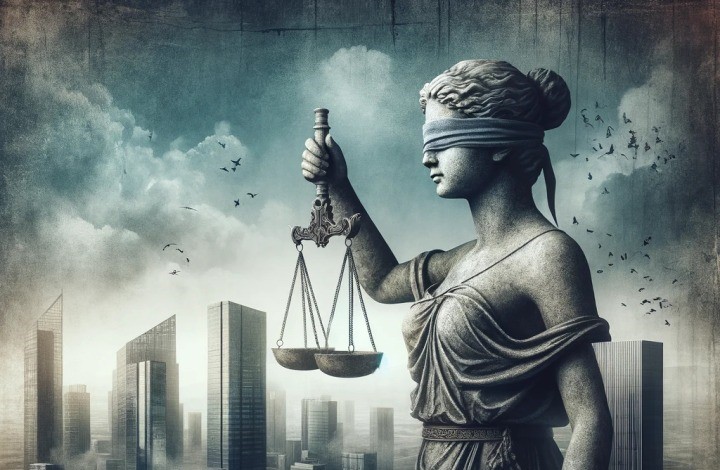“Accountability” is at risk of becoming a forgotten virtue. It’s now a veritable curse word that can label one as unempathetic, privileged, or lead to cancellation. Once the cornerstone of leadership – from Washington’s corridors to corporate boardrooms – we now see a shift away from accountability toward more troubling sentiments.
Reflecting on today’s senior leaders, they contrast sharply with historic figures. President Harry S. Truman’s “The buck stops here” echoes powerfully, signifying leadership that embraces responsibility and shoulders accountability. These leaders were more than figureheads; they embodied fortitude and integrity, steering their people through all times. Sadly, in our era where accountability fades, the mantra seems to be ‘rules for thee, not for me.’
Historically, the military championed these values and in recent times has seen an erosion in accountability. In “The Generals,” Tom Ricks explores World War II leaders’ practices. Generals such as Marshall, Eisenhower, and Bradley upheld this principle, holding junior generals accountable, relieving them swiftly on the battlefield if they fell short.
Modern military leadership has had its share of paragons, too. General Mattis relieved a subordinate and close friend from duty during the Iraq invasion due to inadequate combat performance. His decision, rooted in principle and mission needs, underscores the essence of responsibility and maintaining standards — a trait rare in today’s landscape.
This also underscores world’s increasing complexity. As bureaucratic systems expand, responsibility often gets diffused. Leaders can easily shift blame or navigate around it completely. There is no finer modern example than the botched withdrawal from Afghanistan. This diffusion is dangerous, allowing errors without ownership, causing repeated mistakes, and diminishing public trust.
In an era full of challenges, our society’s linchpin is clear: accountability. More than an abstract ideal, it shapes the rule of law and safeguards our citizens. Without it, foundations upholding order and justice may crumble.
Alarmingly, education is seeing standards precipitously erode. Oregon’s Senate Bill 744 exemplifies this, suspending proficiency in Essential Learning Skills for 2022-2024 classes. Passed quietly in 2021, its implications are vast. This shift suggests valuing ‘low expectations’ over knowledge and standards. Where does this guide the next generation? What standards does this set?
The erosion of standards and accountability isn’t confined to education; it’s seeping into our urban centers. Cities, long symbols of civilization and order, show signs of alarming laxity. From San Francisco to New York City, there’s a growing indifference to certain crimes, especially minor theft and looting. Rather than deterring, this leniency seems to legitimize such unacceptable behavior, suggesting, even incentivizing that criminal behavior is acceptable.
This attitude impacts our police forces profoundly. Nationwide, these brave individuals feel constrained, their peacekeeping efforts hindered. The fallout is wider: with officers feeling undermined, morale drops and the value of their roles is questioned. Worse, public trust in the legal system declines. Institutions once revered for upholding justice now seem unstable in the public’s eyes.
The message projected is alarming – “accountability is not just negotiable; it’s dispensable when expedient.” The fabric of our society is fraying, leading to emerging chaos. We must urgently address this, reaffirming our commitment to core values and restoring trust in our institutions designed to protect and serve. We return to the last remaining bastion of integrity setting our nation’s standard: the U.S. Military. We don’t always get it right, but we uphold responsibility, accountability, and higher standards more so than any other organization in our land.
When asked about leadership in the military, our response is clear: We lead through ACCOUNTABILITY anchored in LOVE. In contexts like the military, love and accountability are deeply linked. My commitment to my troops always took precedence over any animosity towards the enemy. Love might seem incongruous on the battlefield, but it’s at the heart of genuine leadership, especially in dire circumstances.
Why love? It’s because true accountability resembles the care of a nurturing parent. When a child makes a mistake, they are guided by their parent, not as a reprimand but as a learning opportunity. The objective is to foster a person who is a strong, compassionate, principled citizen who contributes to society and can stand on their own two feet.
A military axiom guiding our leaders is: ‘Set The Example.’ It is a form of behavioral modeling summarized as “People will be what people can see.” Our youth, the next generation, keenly observe and absorb our actions.
Cities’ hesitance to tackle evident crimes reflects a broader issue. We risk misleading the next generation by promoting a culture prioritizing systemic excuses over responsibility. This isn’t speculative but rooted in Albert Bandura’s social learning theory: we learn from both experiences and observation. Lacking accountability sets a dangerous example for our youth.
Avoiding accountability is more than setting a poor precedent; it’s endorsing the wrong actions. By allowing blame to shift externally, we nurture a society where playing the victim isn’t just accepted but incentivized.
In Washington, businesses, or the military, leaders are constantly observed. Their actions resonate far beyond immediate spheres. True leadership recognizes that every decision molds the next generation’s values.
Accountability isn’t just admitting errors; it underscores our commitment to growth and higher standards. As society progresses, accountability must remain central, steering our choices and nurturing a generation poised to face tomorrow’s challenges with integrity.


